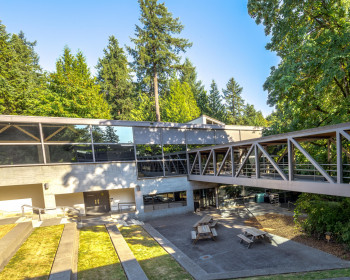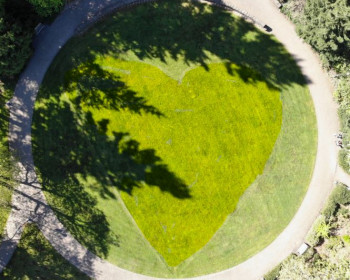Nick Fromherz, staff attorney at LC’s International Env Law Project, speaks to enviro prosecutors in Peru
Open gallery

On March 10, IELP staff attorney and adjunct professor Nick Fromherz spoke with approximately 100 environmental prosecutors in Lima, Peru. Fromherz was the lead speaker in a session focused on illegal fishing and fisheries crime.
In many ways, Peru is ground zero for environmental crimes in the Americas. While tourists come in droves to trek the soaring Andes, to explore the dense rainforest of the Amazon basin, and to marvel at the splendor of the nutrient-rich Humboldt Current, Peru’s wild spaces also attract a darker element: individuals and companies that see an opportunity to profit through illegal mining, illegal logging, and illegal fishing. Unfortunately, given the reality of limited enforcement resources and unrelenting demand in foreign markets, these actors all too often find success. The good news is that Peru’s environmental prosecutors are working hard to curb environmental crimes through increased interdiction, sophisticated investigations, and effective use of existing laws.
In his talk on illegal fishing (“The Role of the Prosecutor in the Fight Against Illegal Fishing: Toward a Global Response”), Fromherz highlighted the complex and nuanced nature of illegal fishing around the world, the need to shift from an administrative approach to a penal approach in many cases, and the merit of rethinking prosecutorial and sentencing policy in the case of low-level actors, who are often poor and act out of economic necessity, and shifting prosecutorial efforts that aim higher up the criminal food-chain. Drawing on IELP’s experience in international environmental law, Fromherz went on to describe the relationship between international instruments and national prosecutorial efforts. When this relationship is properly understood, it becomes evident that environmental prosecutors implement country commitments under treaties and soft-law instruments on a daily basis.
Fromherz’s work in Peru continues IELP’s growing portfolio of projects focused on domestic implementation of international environmental law and the dissemination of best practices in the fight against wildlife crime.
More Environmental, Natural Resources, & Energy Law Stories
Environmental, Natural Resources, and Energy Law is located in Wood Hall on the Law Campus.
MSC: 51
email elaw@lclark.edu
voice 503-768-6649
Environmental, Natural Resources, and Energy Law
Lewis & Clark Law School
10101 S. Terwilliger Boulevard MSC 51
Portland OR 97219

